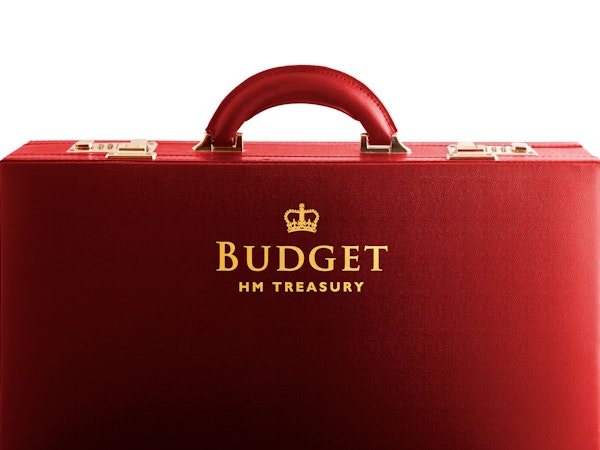Tax Roundup December 2016
Please find below the latest issue of Tax Roundup, a monthly digest of the latest and most important developments in national and international tax. Put together by our experts and delivered directly to your inbox every month, Tax Roundup identifies the tax issues that really matter, enabling you to get the right advice at the right time.

UK TAX NEWS
Charity trading subsidiaries can no longer Gift Aid all taxable profits to parent
HMRC has updated the rules on Gift Aid payments made by trading subsidiaries to their charity parent company. Previously, a trading subsidiary of a charity could Gift Aid all of its annual profits to the parent charity, reducing the subsidiary’s taxable profits to nil. This was possible because such Gift Aid donations were not considered as distributions by the trading subsidiary. This all changed when, earlier in the year, HMRC began viewing such payments as distributions. Payments made in accounting periods commencing on or after 1 April 2015 that exceed the subsidiaries’ profits available for distribution are now considered unlawful. The new rules will probably see profits remaining in the subsidiary company where they will be subject to tax. Charities should assess the impact of this new guidance on their operations. Bright Grahame Murray can help charities assess the effects of the new rules on their operations and recommend the best course of action.
Tax relief for residential landlords to be restricted
From 6 April 2017, restrictions on the tax relief that landlords of residential properties get for finance costs, including interest, will be phased in over a 4 year period. These changes will reduce the tax relief for such finance costs to the less beneficial basic rate of Income Tax (20%). This means that, by 2020/21, interest on mortgages, loans, overdrafts and other costs relating to residential property cannot be deducted against rental profits. The new rules are likely to lead to substantial increases in tax liabilities for many landlords with those who are highly leveraged being among the worst affected. Since companies are exempt from the finance cost reductions, incorporation is one possible solution. However, this option should be viewed with caution because it generates its own complications and liabilities. Landlords who think they may be affected should seek expert financial advice. Bright Grahame Murray can help businesses understand the impact of the restrictions on their business and identify solutions.
Reforms to corporation tax loss relief
From April 2017 companies will be allowed to use trading losses brought forward more flexibly. Currently, losses can be carried forward indefinitely but can only be used against future profits from the same trade. From April, trade losses carried forwards can be used against other profits, including non-trading profits (such as those relating to property). However, the amount of trade loss that can be set off against those profits will be limited. Where annual ‘group’ profits exceed £5 million, only 50% of the excess can be relieved by brought forwards losses. So although trade losses can still be carried forward indefinitely, it may take longer to use them up because the amount that can be offset each year is capped, once profits exceed £5 million.
Withdrawal of corporate tax paper reminders
HMRC has stopped issuing a number of corporate tax paper reminders including acknowledgements of company tax returns following filing, key date letters stating a company’s first accounting period, payment and filing dates, and return and payment reminder letters but to name a few. Instead, companies and their agents can access this information using HMRC’s CT Online service. The paper reminders were withdrawn from 19 September 2016.
Pension re-enrolment
Pension auto-enrolment has been with us since October 2012 for the largest employers. Those employers who were in the first wave of auto-enrolment are now coming up to their first re-enrolment date. Generally speaking re-enrolment duties must be carried out approximately three years after the automatic enrolment staging date and such duties will vary depending on whether an employer has staff to re-enrol or not. It is very similar to the initial auto-enrolment process but there are some new things to deal with and it is a legal duty which carries fines for non compliance. Even if your re-enrolment date is some way off you should make a diary note so you don’t forget this important requirement.
Maximising capital allowances - s198 Elections
As the year comes to a close, it is a good time to ensure you are getting the maximum return on your recent property investment acquisitions, and plan how to ensure you maximise returns on future ones. One aspect that can be overlooked when a property is purchased is the capital allowances position of the eligible plant and machinery that is being acquired with the property. In order for a purchaser to take the maximum benefit of any unclaimed capital allowances a “Section 198 election” must be entered into between the seller and purchaser within two years of the completion of the relevant transaction. The easiest way to obtain this benefit is to make the election at the time of the transaction, but where this has not been done you may still be eligible to claim some benefit in certain circumstances. If you would like additional information on this subject please do get in touch.
INTERNATIONAL TAX NEWS
EC continues to pursue common corporate tax scheme for EU
The European Commission re-launched its controversial Common Consolidated Corporate Tax Base (CCCTB) scheme for EU member states. Under the new proposals, the CCCTB will calculate companies’ taxable profits in the EU using a single set of rules and allocate the consolidated tax base across member states using an apportionment formula. Mandatory for larger multinationals, the scheme will award enhanced reliefs for R&D and will give benefits for equity financing in order to remove the perceived debt bias in the tax system. Despite its overhaul, the scheme remains too radical to achieve the unanimous support it requires but businesses should keep a watchful eye.
UAE launches a Federal Tax Authority
The UAE announced the introduction of a new Federal Tax Authority to collect data, information and statistics on taxes. The move is part of the increased focus in many Gulf States on taxation as a means of raising revenue. VAT, for example, is being introduced in the region as oil revenues fail to meet populations’ expectations.




